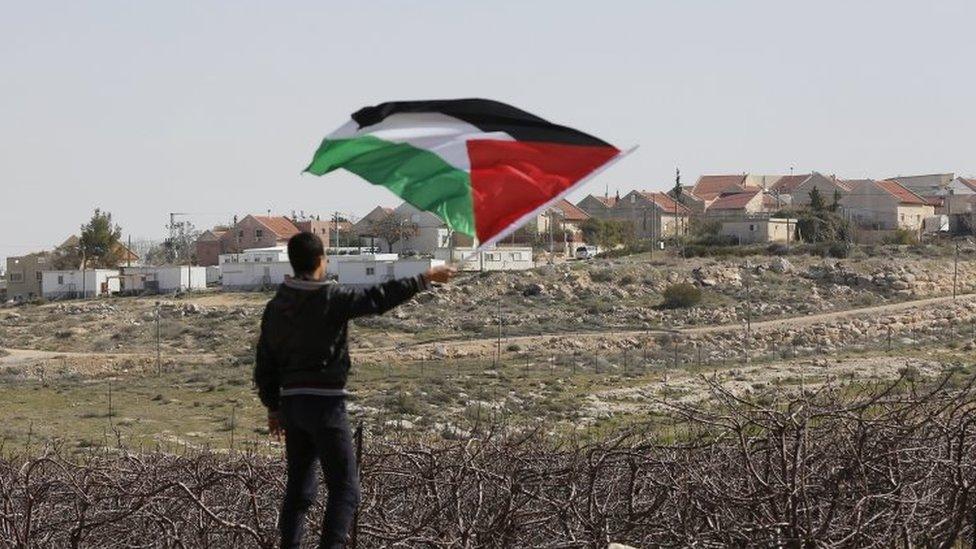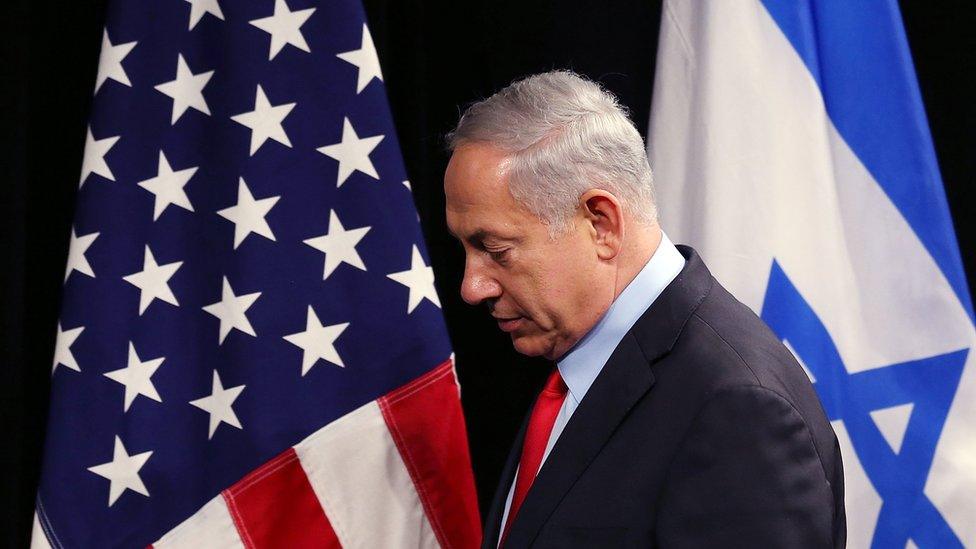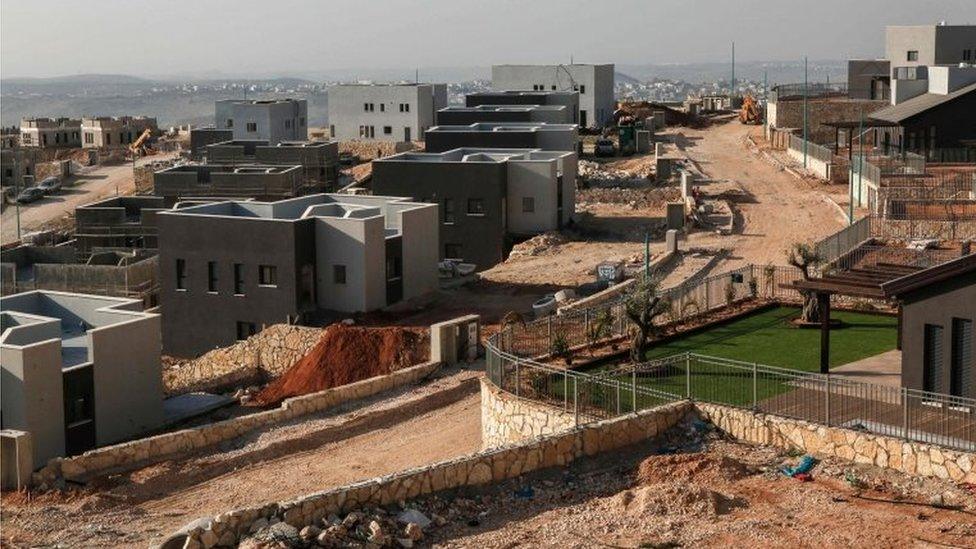Israel-Palestinian conflict: Two-state solution not only option, US says
- Published
Netanyahu and Trump: What are their key priorities?
A White House official says a two-state solution may not be the only option to solve the Israel-Palestinian conflict, signalling a major policy shift.
The comment came as the US and Israeli leaders met for the first time since Donald Trump's election.
Mr Trump says he believes achieving a long-elusive peace is possible, calling it "the ultimate deal".
He has stated his strong support for Israel after its relations with the US deteriorated under Barack Obama.
The former US president was a staunch critic of Jewish settlement activity - strongly advocated by Mr Netanyahu - in the occupied West Bank and East Jerusalem, land claimed by the Palestinians for a future state.
For decades successive US governments have backed a two-state solution - the idea of establishing an independent Palestinian state that lives side-by-side with Israel.
But on Tuesday, an unnamed senior White House official suggested the US would support any form of final peace deal reached between Israel and the Palestinians, retreating from its long-term insistence of a two-state formula.
"A two-state solution that doesn't bring peace is not a goal that anybody wants to achieve," the official said, speaking anonymously.
"Peace is the goal, whether that comes in the form of a two-state solution if that's what the parties want, or something else if that's what the parties want."

What is the two-state solution?
A "two-state solution" to the decades-old conflict between Israelis and Palestinians is the declared goal of their leaders and the international community.
It is the shorthand for a final settlement that would see the creation of an independent state of Palestine within pre-1967 ceasefire lines in the West Bank, Gaza Strip and East Jerusalem, living peacefully alongside Israel.
The UN, the Arab League, the European Union, Russia and, until now, the US routinely restate their commitment to the concept.

State department officials were unaware of any policy shift and have been seeking clarification from the White House, the Associated Press news agency reported.
Palestinian officials have denounced the comments, with Palestine Liberation Organisation executive committee member Hanan Ashrawi telling AFP: "This is not a responsible policy and it does not serve the cause of peace."
Husam Zomlot, an adviser to Palestinian President Mahmoud Abbas, said the "two-state solution is not something we just came up with".
Meanwhile UN Secretary General Antonio Guterres warned that there was no alternative plan for resolving the conflict, urging the international community to do everything it could to bring about a two-state solution.

The idea of creating an independent Palestinian state that co-exists with Israel has underpinned Middle East peace policy for decades
BBC Middle East editor Jeremy Bowen says hardliners in Israel want President Trump to drop the idea of two states, as they believe the land needed for a Palestinian state should be part of Israel.
Separately on Wednesday, two unnamed Palestinian officials said CIA director Mike Pompeo had held talks with President Abbas in Ramallah a day earlier, in what would be the first high-profile meeting between the Palestinians and a senior member of the Trump administration.
The meeting was described as "warm and positive," according to the Associated Press.
'Dangers and opportunities'
President Trump and Benjamin Netanyahu have previously met and both have spoken of having a good relationship.
As he departed for the US, Mr Netanyahu said he and President Trump "see eye-to-eye on the dangers emanating from the region but also the opportunities".
Iran is also expected to be high on the agenda, with both leaders previously denouncing the nuclear deal reached under the Obama administration.

Israeli PM Benjamin Netanyahu hopes for strong backing from the Trump administration
Mr Netanyahu sees Iran as the number one threat to Israel and has urged "responsible nations" to follow Mr Trump's lead after the president imposed fresh sanctions on Tehran in response to a ballistic missile test.
Iran does not recognise Israel's right to exist and has called for its eradication. President Trump has described as a "terrible deal" the 2015 agreement which lifted international sanctions on Iran in return for scaling back its nuclear programme.
Trump's position on settlements
Israel regards the election of Donald Trump as an opportunity to improve relations with the US.
After Mr Trump indicated he would take a much more tolerant approach to Jewish settlement activity, Israel advanced plans for thousands of new homes in settlements in the West Bank and East Jerusalem.

Israel's settlement-building is likely to be discussed on Wednesday
Soon after, however, the US president expressed some concern saying, external he did not see "going forward" with settlements as conducive to peace.
But, at the same time, the White House said it does not regard the existence of settlements as an impediment - a reversal of the long-term position of the US.
More than 600,000 Jews live in about 140 settlements built since Israel's 1967 occupation of the West Bank and East Jerusalem. The settlements are considered illegal under international law, though Israel disputes this.